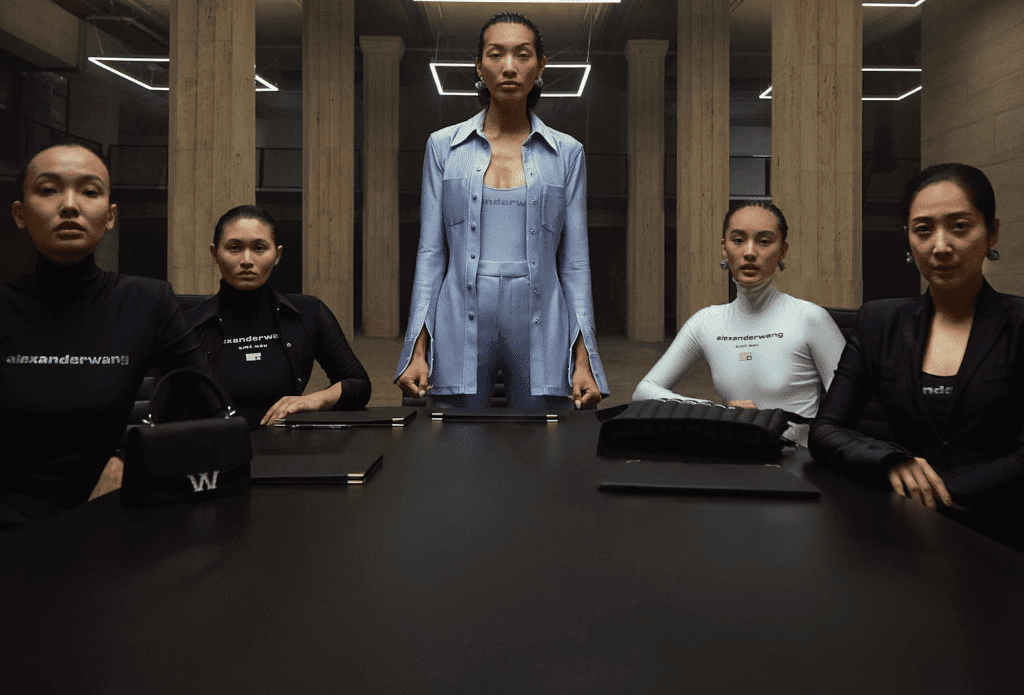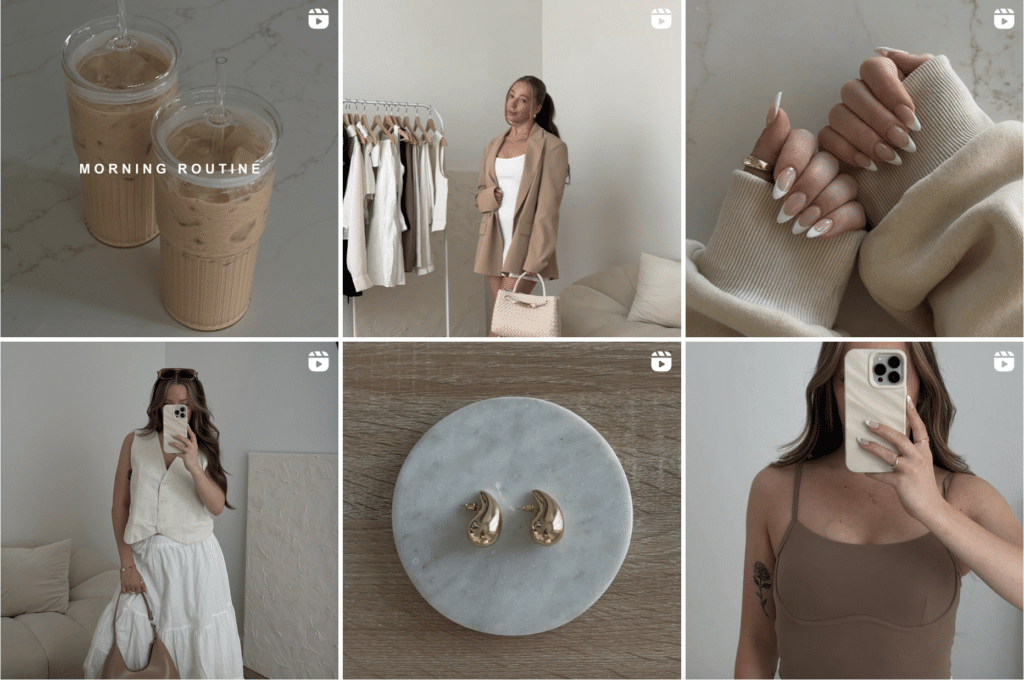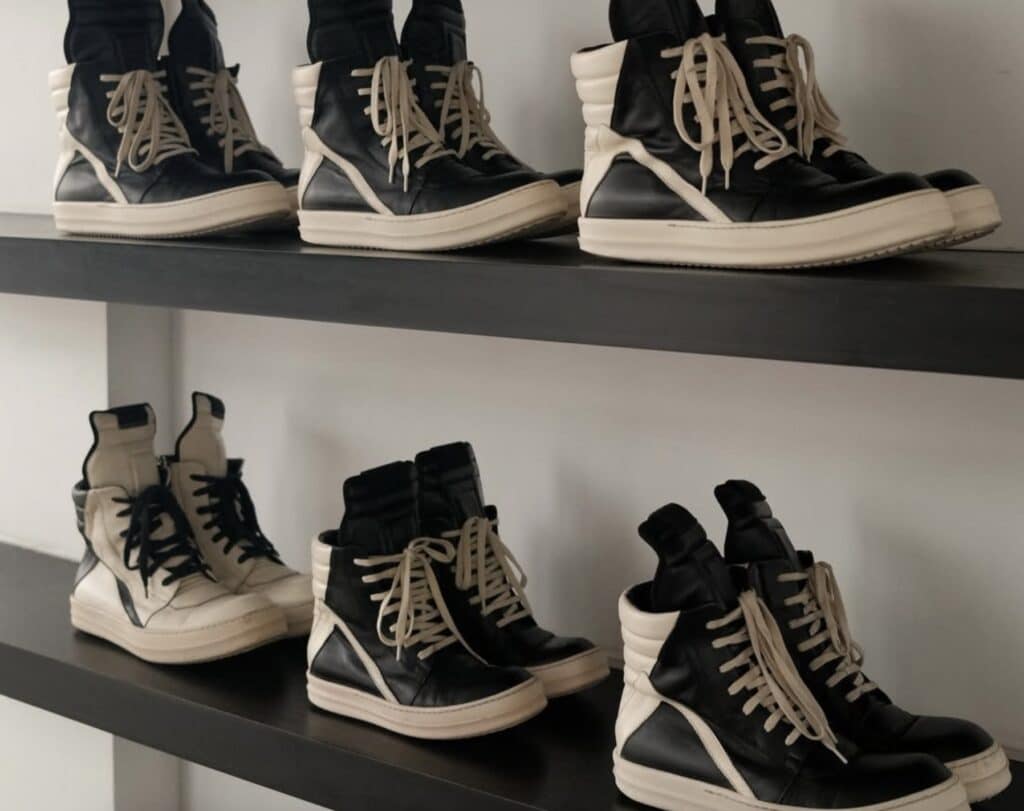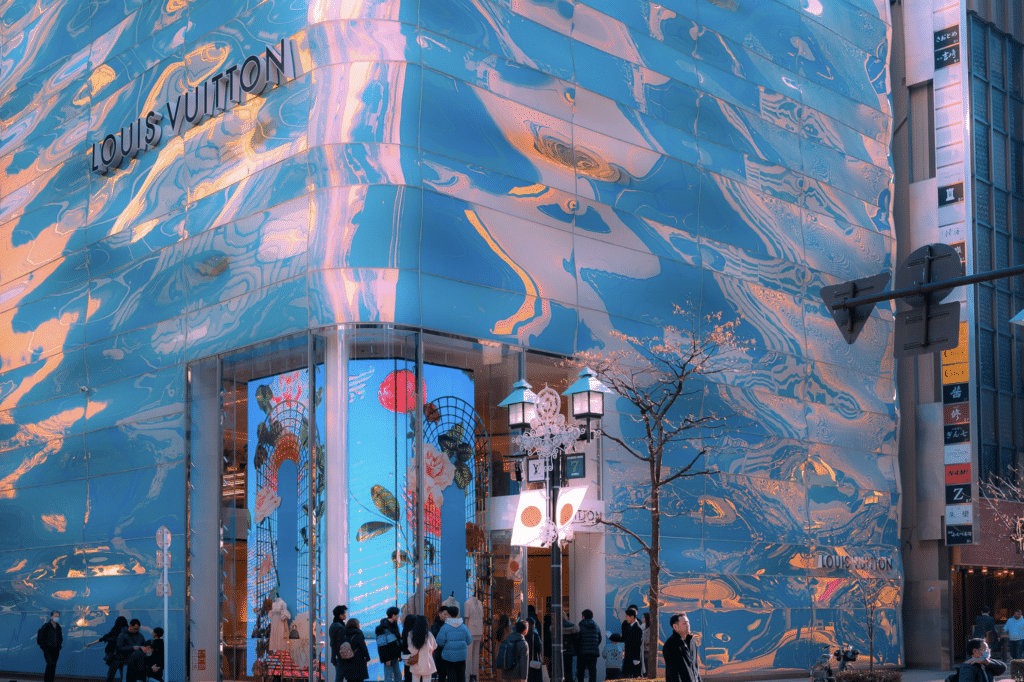Alexander Wang is being sued for allegedly co-opting the designs of a job applicant-slash-contest entrant for a multi-platform ad campaign. In a newly-filed complaint, Jangle Vision, LLC claims that the defendants, including Alexander Wang – the man and the New York-based brand – are on the hook for copyright infringement and unfair competition over their advertising for a collection of rhinestone-adorned accessories, the concept and images for which they allegedly hijacked from those created by Jangle Vision, “a multi-faceted art and design house focusing on the intersection of art and design in real world and technical applications.”
According to the complaint that it filed in a California federal court on Monday, Jangle Vision asserts that in November 2018, its founder Claudia Diroma “submitted an online application to [Alexander Wang] for a position as a temporary graphic designer.” Shortly thereafter, she also entered “an online contest to be authorized to photograph one of [the brand’s] runway shows,” in connection with which Diroma provided the defendants with “links to the Jangle Vision website and a copy of her artistic portfolio, which included all of the artwork that [she] had produced under the Jangle Vision brand through November 26, 2018, including collections of individual Jangle Vision Twins in different colored skins framed within circular structures.”
At the heart of Diroma’s portfolio are her Jangle Vision Twins designs, which she describes as consisting of “a series of original, visually arresting, highly distinctive two-dimensional drawings, animated video clips and related graphical works depicting androgynous-presenting female characters that are readily distinguishable and immediately identifiable by, among other details, the lithe, angular shape of their bodies and their skin-tight full body suits or ‘skins’ in pink, blue, black and red, revealing only their eyes and mouth through openings in the face of the skin.”
On the heels of submitting these materials, Jangle Vision alleges that Diroma “was contacted via telephone [in December 2018] by Juno Kim, a Talent Acquisition Consultant for the defendants … [who] confirmed that the defendants received a copy of [her] application and portfolio, [and] told her that her work and résumé stood out from the other applicants.” During the call, Mr. Kim “solicited information from Ms. Diroma regarding the Jangle Vision Twins and her inspiration for creating the characters,” the plaintiff alleges, and then requested “additional character designs” from Diroma, which she provided
All the while, Jangle Vision argues that “at no point did Mr. Kim ever inform [Diroma] that the submitted materials would be used by the defendants for any purpose other than to confidentially evaluate [her] qualifications for the open designer position.”
Instead of giving her a job or selecting Diroma as the contest winner, however, Jangle Vision claims that the defendants “affirmatively solicited, sought out and received complete copies of all Jangle Vision Twins works from [her] under the pretense of considering her for employment as a designer,” and then “knowingly, willfully and flagrantly infringed [her] copyrighted Jangle Vision Twins by creating, reproducing, publicly displaying and otherwise commercially exploiting the infringing characters” by way of a social media and email campaign to promote the brand’s new rhinestone collection.”
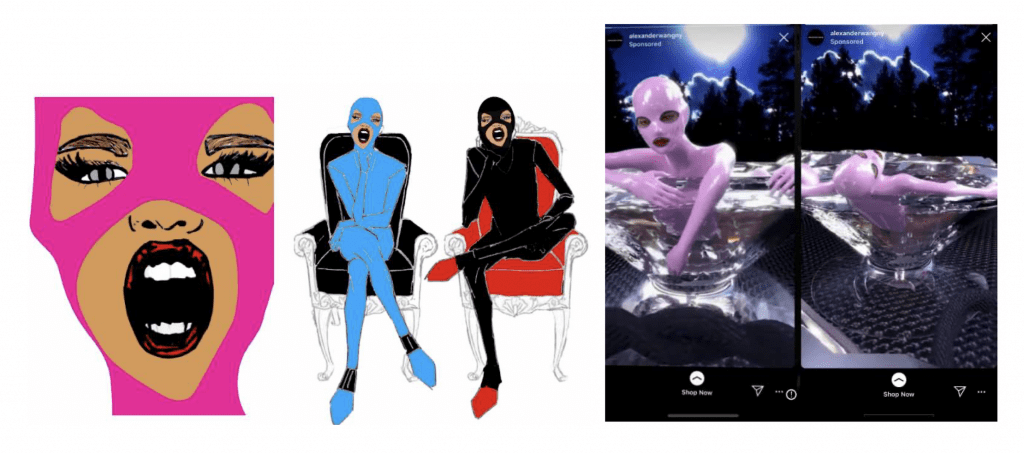
Specifically, Jangle Vision asserts that in July 2020, Diroma received “multiple contacts from friends and associates familiar with her Jangle Vision Twins works, advising her that a video clip advertisement displaying 3D animated versions of the Jangle Vision Twins had been posted on the defendants’ Instagram page … promoting the defendants’ line of luxury, high priced ‘rhinestone’ designer handbags.” More than that, Jangle Vision says that Diroma “also learned that the defendants presented the infringing characters in a series of targeted email advertisements,” which featured copycat characters that “in pools, intentionally meant to invoke the same circular environment in which Diroma presented the Jangle Vision Twins.”
In a testament to the success of the “infringing ad campaign,” Jangle Vision claims that Alexander Wang “added additional handbag styles and colors” to its lineup of rhinestone products, and ultimately, used Diroma’s designs as “the cornerstone of an entirely new branding concept for not only the rhinestone handbag line and the Spin-Off Products, but for [their] entire fashion apparel and accessory collection.”
By hijacking the Jangle Vision designs and “saturating social media and other channels of communication with [them by way of] the infringing ads and the infringing emails,” Jangle Vision claims that Alexander Wang and co. have “interfered with and completely preempted [its] plans and opportunities to commercially develop and exploit the Jangle Vision Twins works and concept for [its] own account.” At the same time, Wang’s “massive, ongoing publication of the infringing characters has preempted and destroyed the market for [Jangle Vision] to sell the original Jangle Vision Twins works as well as limited edition prints, posters, and other reproductions of those previously unpublished works,” the company asserts.
With that in mind, Jangle Vision claims that it has suffered “actual damages as a direct, proximate consequence of [Wang’s] infringement” – as well as its unfair competition – in an amount believed to be not less than $6 million.” Setting out claims of copyright infringement and unfair competition, Jangle Vision is seeking monetary damages of not just $6 million, but also the estimated $75 million that Wang generated in profits in connection with its use of Jangle Vision’s designs, as well as injunctive relief to permanently bar the defendants from further infringing its rights in the designs at issue.
As for the strength of Jangle Vision’s case, based on the imagery it included with the complaint, its quest to claim infringement may be an uphill battle. Among other things, it might not be able to establish substantial similarity between its designs and those in Alexander Wang’s campaigns, with its claims based on the two uses of latex bodysuits situated in circular framing. However, the second prong of the U.S. Court of Appeals for the Ninth Circuit’s substantial similarity test – which includes a consideration of the “extrinsic” and “intrinsic” elements of the works, with the latter consisting of a comparison of the “total concept and feel of the two works” – paired with Ninth Circuit precedent – which “has substantially restricted the opportunity for defendants to obtain dismissals of copyright claims” – could bode well for the plaintiff.
This all assumes, of course, that the critical creative elements at issue – which generally consist of the depiction of skinny women in colored latex bodysuits (ones that counsel for Wang will almost certainly argue are unoriginal) – are not merely ideas that can only be rendered so many ways, and instead, amount to protectable expressions.
The Jangle Vision complaint is the latest squabble that the Wang brand and its eponymous founder have faced this year. On the heels of a handful of models speaking out against Wang on sexual assault grounds, the designer and his brand faced significant backlash and ultimately, appear to have resolved the matter, with Wang issuing an apology in March, and Lisa Bloom, who acted as counsel for the models, subsequently stating, “We have met with Alexander Wang and his team. My clients had the opportunity to speak their truth to him and expressed their pain and hurt. We acknowledge Mr. Wang’s apology, and we are moving forward.”
A representative for Alexander Wang was not immediately available for comment.
The case is Jangle Vision, LLC v. Alexander Wang Inc., 2:21-cv-06627 (C.D. Cal.).




